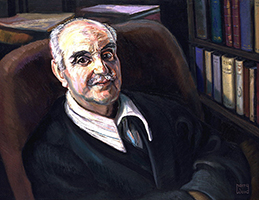 To Charles Augustus Strong
To Charles Augustus Strong
Volksdorf, Germany. August 14, 1905
Dear Strong,
Your last letter has given me much to ruminate over—at first I couldn’t understand all your points but I think that I do now. When you say that “extensity” is not extension, and that it belongs to sensation and not to the object felt, I recognise a Jamesianism; but it seems to me that if we distinguish the fact of feeling from the content of it, the former being a psychic event and the latter a material element, “extensity” is altogether absent from the first; a landscape has extensity, but my seeing the landscape has none. The difference between a landscape and infinite geometrical space, I understand; the latter being constructed; but the extensity of something which is a psychic fact and not the object represented or discovered there, is beyond me. Are you not running about in a circle trying to escape from natural things and forced nevertheless to find behind your back what you are removing from before your eyes? Of course I use “mind” for what is distinguishably psychic, non-extended, imponderable, neither north, east, south, or west of any other mental fact. But the extensity of James’s bellyache is decidedly under his waistcoat, and is in truth nothing at all but the projection of one vague physical object, in which pain is felt, into the region covered by another physical object, better defined, in which pride, perhaps, is taken. But to say that the pain, apart from the idea or object called the belly, is extended seems to me as capricious and silly as to say that the pride I take in my waistcoat is an extended, rounded, and many-buttoned pride. I agree with you that sensation and emotion are the subject-matter of psychology, quite as much as reflection or thought; but sensation, to be distinguished from what is felt, has to lose its material properties and cease to be extended, coloured, heavy, measurable, lockable in chests, or preservable through time. In a word the occasions of knowledge are mental but the objects of knowledge are not.
Yours ever,
G Santayana
From The Letters of George Santayana: Book One, [1868]-1909. Cambridge, MA: The MIT Press, 2001.
Location of manuscript: Rockefeller Archive Center, Sleepy Hollow NY.
